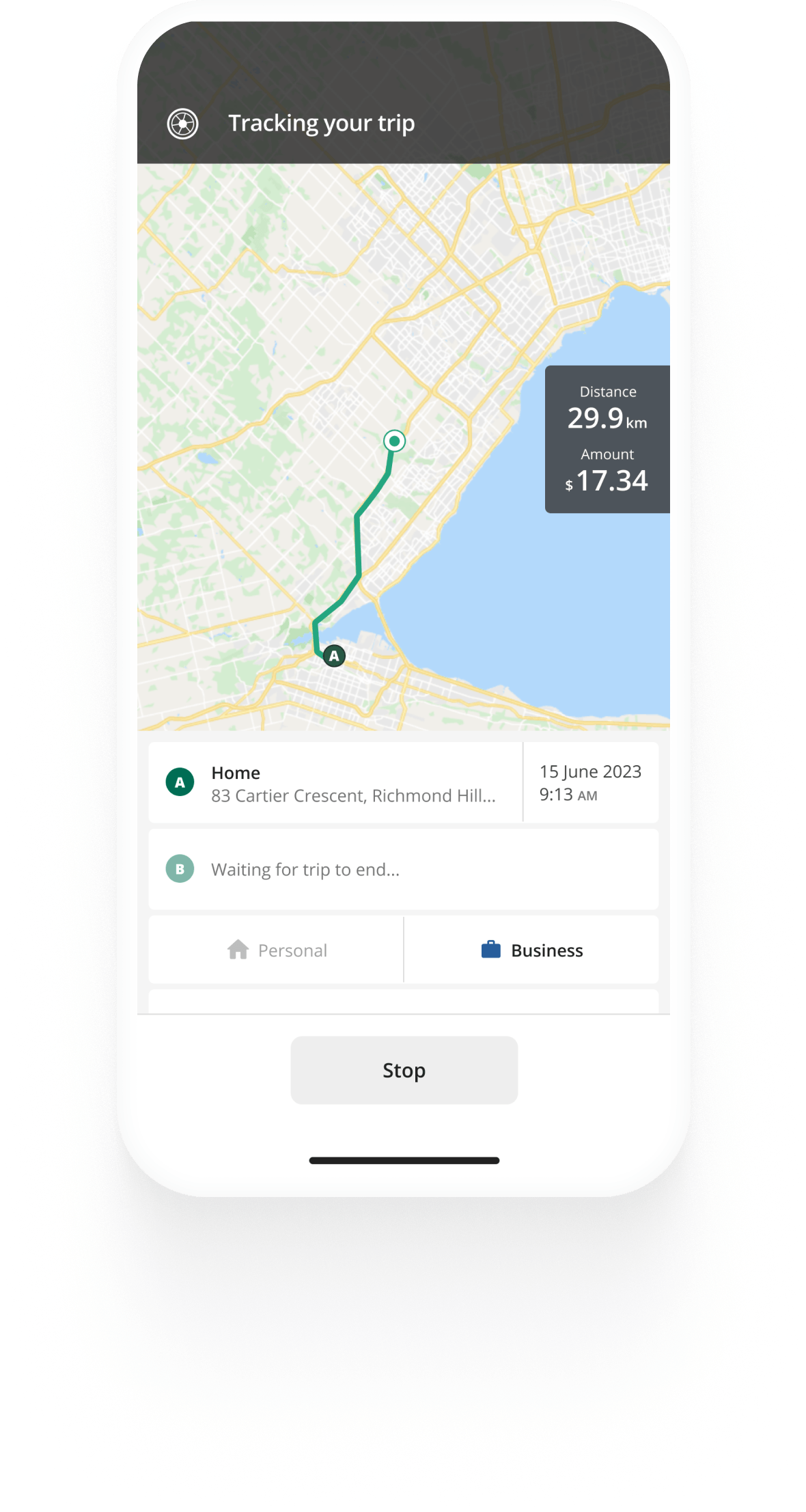Track mileage automatically
Get started
Travel Expenses for Employees
Any charges an employee incurs when travelling for work are considered travel expenses. Traveling to a client's site, going to a conference, or stopping by a separate office of the business are all examples of this. It excludes any non-business-related personal expenses.
The charges for the additional time, for instance, wouldn't be regarded as a legitimate travel expense for reimbursement reasons if the employee extends the trip by a few extra days.
It is often the policy of a Company to reimburse employees for reasonable and necessary costs incurred while on authorised work-related travel.
Example of work-related travel expenses include a) Airplane tickets b) Baggage fees c) Train tickets d) Rental cars e) Hotel rooms and accommodations f) Business meals, food and beverages g) Road tolls h) Parking fees.
The CRA rules on travel expenses
What are travel expenses? If you meet all of the requirements below, you may write off your trip expenses:
- You are normally required to work elsewhere or in a different location from your employer's place of business.
- Your work contract requires you to cover your own travel costs.
- You didn't get a reimbursement for your travel costs that wasn't taxable. Generally, if an allowance is for a fair amount, it is not taxable.
- You must maintain a copy of Form T2200, Declaration of Terms of Employment, which has been filled out and signed by your employer, with your records.
On the "Other expenses" line of Form T777, Statement of Employment Costs, enter your claim for deductible transportation costs (including those incurred by bus, train, or other mode of transportation).


Track business driving with ease
Trusted by millions of drivers
Automate your logbook Automate your logbook

Automatic mileage tracking and CRA-compliant reporting.
Get started for free Get started for freeRates for travel expenses
The 2026 mileage reimbursement rate is 73 cents per kilometre for the first 5,000km driven and 67 cents per kilometre after that.
Any incidental expenses spent while using your car (such as charges for jump starts, tyre changes, etc.) are reimbursable as long as they are fair under the circumstances. You must spend a minimum of twelve straight hours away from your regular place of employment in order to be eligible for deductions on food and drink while travelling.
The most you can deduct from a business dinner is 50% of the lower of the two amounts: the actual cost and the amount that would have been appropriate under the circumstances.
To receive reimbursement for tolls and parking fees incurred during a business trip, a receipt or other proof of payment must be shown. Fuel costs paid by employees driving rental cars will also be refunded with proper documentation, such as a receipt or payment confirmation.
Are travelling expense reimbursements taxable?
According to the CRA, travel reimbursements are not taxable and can be deducted from the employee’s income if all of the following requirements are satisfied:
- The employee travels away from the office.
- The allowance is reasonable. The CRA generally considers a value of up to $23 for the meal portion of the travel allowance to be reasonable.
- You are the primary beneficiary of the allowance.
- The allowance is not an additional form of remuneration.
FAQ

Tired of logging mileage by hand?
Effortless. CRA-compliant. Liberating.
Top posts
- Car Allowances for Employees in Canada
- How to Claim Mileage on Taxes
- FAQ About The CRA Automobile Allowance
Related posts
Travel Expenses for Employees
Latest update: January 16, 2026 - 2 min read
Need to know how to receive travelling expenses reimbursement from your employer? Learn about CRA travel expenses and if they are taxable as part of your income.
Car Allowances for Employees in Canada
Latest update: January 16, 2026 - 2 min read
Learn everything about car allowances for employees in Canada in 2026 - see if your car allowance will be taxed and what you can use it for.
How to Claim Mileage on Taxes
Latest update: January 16, 2026 - 5 min read
Employees and self-employed may claim mileage and reduce their taxes when using a vehicle for business. Methods and forms explained.
.svg)
